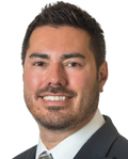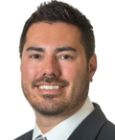Career
Tips for Getting Into Graduate School
So you want to study LGBT psychology. Here's some advice from two professors.
Posted November 2, 2012

Admission into a Psychology doctoral program is very competitive. The top programs accept only a handful of students every year, despite receiving hundreds of applications. The process can be a bit overwhelming no matter the area you want to specialize. Fortunately there are some good general resources with information about the process (see this APA webpage to start). The process can be even more difficult to navigate when you want to specialize in LGBT Psychology and there are fewer resources to help guide you. Over the years I have mentored many undergraduates through this process, as well as mentored my own Clinical Psychology graduate students, and Psychology Interns. From this experience, I want to share some advice for anyone thinking about going down this road. To help expand the perspective (and the quality of the advice) I enlisted my colleague Dr. David Huebner to co-author this post with me. Dr. Huebner is an Associate Professor of Psychology at the University of Utah, where he serves as a mentor to students in the Clinical Psychology track. He is a well-known expert in LGBT Psychology and creator of the Lead with Love film that offer advice to parents when a child comes out as LGBT. We drafted this list of advice together and then received feedback from our graduate students and other faculty. The advice is targeted at prospective psychology graduate students who want to study LGBT populations, but also likely applies to related disciplines. The advice is probably less relevant if you are not seeking a research-intensive psychology program.
The Mentor
Most psychology graduate programs follow a mentorship model where applicants identify a specific faculty member who they want to train with. If accepted into the program, the student will then train under this mentor during their graduate program, often working on projects based within their mentor’s lab. The mentor will often chair their thesis committee and sign off on course related decisions. For this reason the match between student and mentor is very important and the mentor often has a lot of discretion in deciding if a qualified applicant will be admitted to the program. Here are some things to consider in terms of identifying a mentor:
- While ideally you may want to work with an internationally-known expert in the aspect of LGBT health that interest you, the reality is that there aren’t enough of these faculty to go around. Sometimes the best training you can obtain is actually with a faculty member who is not currently doing LGBT research, but who is a nationally recognized expert in another area related to your interests (e.g., substance use, depression, bullying, family therapy, condom use). Getting outstanding scientific training from a well-respected program can sometimes take you farther professionally than going to a lesser-known program or a working with an LGBT faculty member who is less active in research. If you do go that route, you might have to work harder to sell yourself to the program. Don’t hide your LGBT-interests, but also express a lot of interest in the specific work that is happening in the faculty member’s lab, including a willingness to work outside of LGBT topics. You’ll likely end up needing to spend some time working on research that isn’t LGBT-related. However, getting that strong foundational training can be a fantastic jumping-off point for a dissertation on an LGBT topic, or for a post-doctoral fellowship in the area. This approach may be especially appealing if prior students have been successful in doing dissertations on LGBT health topics within the department.
- If you do decide you want to have a mentor focused on LGBT health, it may be hard to find one who is also doing work on the specific health issues that interest you (e.g. alcohol abuse in bisexual women). Instead you may need to have multiple mentors that can help train you across the areas you are interested in (e.g. one mentor who does research on alcohol abuse, one on LGBT health). For example, you should look outside of the Clinical Psychology division to programs like Social and Developmental, which may have faculty conducting LGBT research. Even other departments (e.g. Psychiatry, Sociology, Preventive Medicine) may have faculty doing LGBT health research that can co-mentor psychology grad students. This is fairly typical, but you should still check with your mentors and department director of graduate education that this approach is acceptable.
How do you find a faculty member with an interest in LGBT health? The American Psychological Association did a survey of graduate psychology programs in 2009 to identify faculty doing work in this area. Of course keep in mind that this list is likely incomplete. To find others you may want to search the websites of universities that interest you because of the strengths of their program. You may also want to search NIH reporter for relevant keywords (gay, LGBT, MSM) and the type of department you are looking for (e.g. Psychology, Psychiatry, Human Development). NIH funding is a strong marker of research productivity. You can also look at the website of Division 44 of the American Psychological Association, which focused on LGBT psychology.
The right school and program
Just like it is important to be a good match with your mentor, it is also important to be a good match to the school and department. Different programs have very different perspectives on graduate education and you will want to find a program that is a good match for you. Here are some things to consider:
- When considering locations for graduate school, don’t ignore your quality of life. But also don’t be driven by an overly narrow view of what you think you need to be happy. You might feel like leaving New York City or San Francisco is the equivalent of social or romantic suicide. But if you want to get into graduate school, be open-minded about other places. Five years can feel like a long time to live somewhere, but if you get the best possible training, you’ll have more choices throughout the rest of your career. Particularly if you want to be an academic, where jobs are highly competitive. So when deciding on a graduate program, you might find that your unwillingness to give up your super-trendy East Village apartment ultimately means you have to move to a less exciting location to find a job. Five years isn’t that long when you think about it in the context of the rest of your life.
- Be sure to consider the climate for LGBT students within the programs you’re considering. You’ll want to assess this tactfully – there is a time and a place for drum-beating and flag-waving, and it’s probably not your graduate school interview. That said, if you’ve chosen to make your sexual orientation or gender identity known to programs, definitely try to find out what it’s like to be an LGBT student in the program. The way programs handle LGBT issues ranges widely, from celebration to benign neglect to hostility. You might be able to be happy in any of those climates. But know yourself and know what you’re getting into. How to do this? You might try and find out if there are “out” faculty and students in the program. If someone in the department is doing LGBT research, how does that seem to be viewed by others in the department? Some departments play a lot of lip service to diversity initiatives, but sometimes when these students arrive on campus it turns out there are very few resources actually in place to help them achieve. Does the program require all students to participate in Diversity/Multicultural curriculum? Does that curriculum include topics relevant to LGBT health? These can be questions that are asked of faculty during interviews, or asked of students via email. If you’re on the fence about asking a certain question, keep in mind that it’s always safest to ask the difficult questions after you have received an offer of admission.
The Interview and personal statement
Most programs require some opportunity to get to know the applicant beyond their academic credentials. This can come in the form of a personal statement in the application and/or an interview for finalists. We often get questions about if an applicant should “come out” in their application or interview. There is no universal answer to this question, but here are some things to consider:
- Our opinion is it is a net benefit to mention your sexual orientation, but not make it the focus of who you are. If the program values diversity, they will see your sexual minority status as an advantage to diversifying their student body. At the same time you don’t want to make it the focus of your application because then your application becomes more about your identity and less about your ideas, skills, and potential. If in an interview at a program, an applicant feels they need to lie or play it straight, this will bode ill for their future experience in the program.
General Advice
While our focus here is students interested in research on LGBT Psychology, we also wanted to share a few more general suggestions on the process of allying to graduate school.
- Make sure you build as strong a record as possible prior to applying. If you’re competing for a scarce resource – either an LGBT mentor, or a non-LGBT mentor who is open to doing the work – you’ll have the best success if you have top-notch experiences and an outstanding application. So what does a strong record looks like? To get into a strong program students need to have outstanding grades and GREs, intensive research experiences, evidence that they’ve begun thinking about scientific ideas at a high level (e.g., independent research projects, poster presentations, ideally at a real national conference, not an undergraduate research symposium, or inclusion as an author on a journal article), and letters from faculty who know them well and can say a lot more than “This person was a hard-working RA.”
- Do a lot of research on the front end about the mentor you would be working with. Getting into a PhD program and being happy once you are in there has a lot to do with match between mentee and mentor. Both a match in terms of research interests, professional interests, working style, and even personality is important. Talking to current students in the program is one of the most helpful things a prospective student can do, as well as reading anything the potential mentor has published recently. Ask yourself if you can you see yourself researching similar areas? Can you see yourselves getting along? Of course some programs don’t focus as much on a single mentor charting your grad school destiny, and the mentor may matter a little less in those places, but this is important to determine before making a decision.
- During interviews, be ready to talk about at least one specific research question you want to answer. Be prepared by having read at least some literature on that topic, and by having thought about specific methods to answer a question related to that topic. If this question relates to your interviewer's research specifically, all the better. The goal here is to sell yourself as a thinker and potential collaborator, so you want to come in showing that you have a general knowledge base about how to do research, and also a specific idea that you want to contribute to the faculty member's research. If you’re able to bounce around multiple research ideas “on the fly” with your prospective mentor, so much the better. Faculty are often most impressed by candidates with whom they have a fun, interesting exchange of ideas during the interview. To prepare for this interview, try to get a current Clinical Psychology graduate student or faculty member to listen to you speak about the research you want to do. The purpose of this is to make sure you are using the right language and not coming off as someone who is faking it or is unknowledgeable.
- Read the book “Getting what you came for” for a lot more general information and advice about Graduate School.
If you have other advice or suggestions please share them in the comments section.
Dr. Mustanski is the Director of the IMPACT LGBT Health and Development Program at Northwestern University. You can follow the Sexual Continuum blog by becoming a fan on Facebook. He periodically live tweets from research conferences on sexuality and you can follow him @sexualcontinuum.




